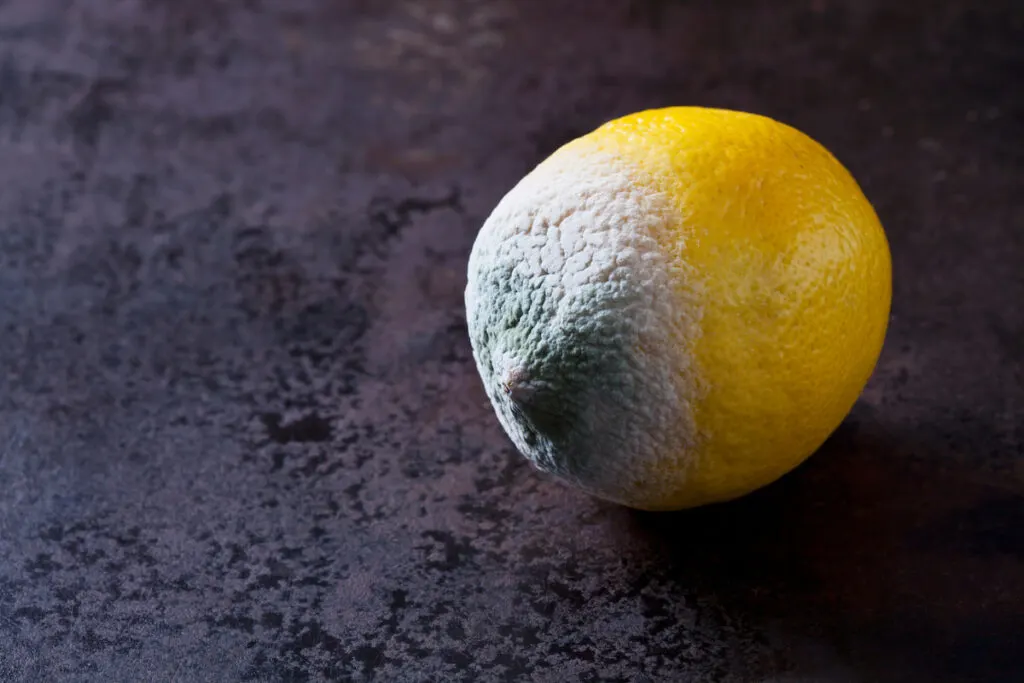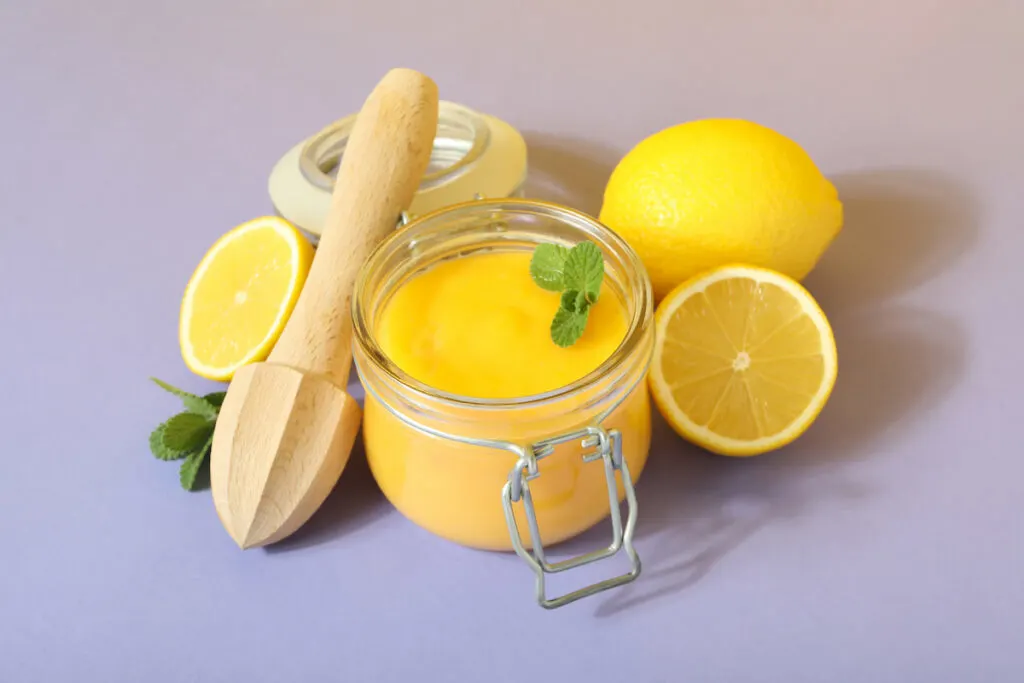From culinary uses to cleaning and pest control, lemons are widely applicable in the home. But they do not remain fresh forever, and obviously, their usefulness is dependent on their shelf-life.
Lemon, in any form, stored in a freezer will stay fresh longer than that kept in a pantry or fridge. But no matter the method of preservation, they will all go bad after some time.
So, how do you know when your lemon has lost its freshness? Below, we discuss 15 ways to tell if a lemon is bad.

Table of Contents
4 Ways to Tell if Fresh Lemons Are Bad
Here are some ways to help you determine if the fresh lemons you have stored in your home are bad:
Change in Skin Color
The easiest way to tell if fresh lemon is stale is to examine it. Naturally, the skin of a good lemon should have an even bright yellow color. So, if you notice any changes like dark or white spots, the lemons are going bad.
Brown or dark green spots on lemons are also indicative of spoilage. Such spots may also indicate the formation of mold, and the affected lemons should be thrown away.
Note, if your lemons appear to have turned bright green, they are not necessarily spoilt.
Many times, when fresh lemons are exposed to extreme temperature changes, they turn bright green. This is why you need to store lemons in a cool, dry place.
So, provided your lemons just change to vibrant green color with no mold or dust, they are still safe.
Change in Taste and Smell
Another way to verify if your lemon is spoiled or not is to taste or smell it. When lemons become spoiled, they will lose their citrus taste.
Interestingly, they sometimes maintain a perfect outward appearance when this happens. Still, have it at the back of your mind that lemons lose their citrus taste with time.
When unconvinced by the seemingly perfect appearance of your whole lemon, you can cut it and taste it. If you notice the lemon no longer has its citrus taste, you may discard it or use it. However, a lemon that has lost its citrus tang is no longer fresh.
We all love that fresh, citrusy smell of lemon. But once you notice your lemons are beginning to smell fermented, rotten, and objectionable, they are bad and should be discarded.

Presence of Mold
As we already mentioned, a fresh lemon should have firm and smooth skin. Once you start noticing soft spots on your lemons, they are on their way to becoming moist. Once your lemons become soggy, they will become moldy.
Mold on lemons is typically powdery, and like many other citrus fruits, it is commonly caused by Penicillium digitatum.
If your lemons have a powdery feel, they are most likely already moldy and should be discarded.
Change in Texture
Naturally, a good lemon should be firm and have a plump look. It is perfectly normal for your lemons to lose firmness over time when you keep them in the fridge or pantry. If you apply any sort of pressure to your lemons and they yield slightly, they are fine.
While a loss of firmness is not an issue, the following signs are indicative of a spoiled lemon:
- Lemons with no moisture may shrink in size and become firm. So, if you notice that the skin of your lemon is wrinkled, it is indicative of dryness. Such lemon should be discarded immediately. Although, you may still cut the lemon open to confirm if it still has some juice.
- Secondly, if you notice the outer skin of your lemon has become slimy with too many soft spots, it is time to discard it. However, if the softness does not cover the whole lemon, simply cut it off and use what is left if the lemon still tastes and smells fine.

4 Ways to Tell if Bottled Lemon Juice Is Bad
- If the bottle of your bottled lemon juice has a bulge or if it leaks, the lemon juice has lost its freshness, and you should discard it.
- Bottled lemon juice in dented bottles is highly likely to be stale. So, you should avoid buying it in this state.
- The formation of mold in bottled lemon juice is indicative of spoilage. So, you should dispose of the contents of the bottle.
- Once you open a bottle of lemon juice, it has a shelf life of about 6 months in the fridge. So, when this time elapses, you may discard it. On the other hand, an unopened bottle of lemon juice can last for at least a year when you store it properly.
2 Ways to Tell if Fresh Lemon Juice Is Bad
- Naturally, freshly squeezed lemon juice has a zesty aroma with a tart and citrusy taste. But when it loses these qualities, it has most likely gone stale. Lemon contains citric acid that acts as a natural preservative from bacteria. However, these bacteria will multiply over time, and eventually, they will spoil the juice. Yeast and mold may also ruin your lemon juice in the same way.
- Once you store lemon juice for more than a day at room temperature, you should discard it.
How to Tell if Sliced Lemons Are Bad
When you cut a lemon open, the shelf life of the lemon reduces. This reduction in shelf life occurs due to dehydration which causes the lemon to become tough and dry. Once the lemon becomes dry, you will be unable to use it.
When storing sliced lemons, ensure you place them in a sealed container before refrigerating them. This way, you will prevent dehydration. Ensure you use your sliced lemons within 3-4 days or they will go bad.
2 Ways to Tell if Lemon Extracts Are Bad
- When you purchase your lemon extract from the store, always check for an expiration date. This date will help you know when it will most likely go bad.
- Homemade lemonade, on the other hand, has no expiration date. But when it loses its citrus tart or effuses a foul smell, it has spoiled.
Ensure you store your lemon extract in a cool and dark place with no sunlight to enable it lasts longer. Ensure you always keep the container closed. Your lemon extract can have a shelf life of up to 3-4 months when you store it properly.

2 Ways to Tell if Lemon Curd Is Bad
- To determine if your lemon curd is bad, examine its smell and appearance after defrosting. Its taste should be about the same as it was before freezing.
- If you are still not sure your lemon curd is ok, try tasting it. The taste should be similar to before you froze it. If it does not taste the same, then it should be discarded.
Due to the citric acid in lemons, lemon curd usually lasts longer. This is even truer when you store it correctly. The most appropriate way to keep lemon curd is to freeze it in a container.
Final Thoughts
Like everything organic, lemons will go bad within a short period if not stored correctly.
Detecting a spoiled lemon is pretty straightforward. Qualities like its taste, odor, texture, and physical appearance will not be as they should be.
So, once you notice a substantial change in those features, your lemon is most likely bad.
Resources:
- https://livinpaleocuisine.com/how-to-tell-if-a-lemon-is-bad/
- https://homecookbasics.com/how-to-tell-if-a-lemon-is-bad/
- https://foodsguy.com/how-to-tell-lemon-bad/4
- https://farmhouseguide.com/ways-to-tell-if-a-lemon-is-bad/
- https://www.simplyhealthyfamily.org/how-to-tell-if-lemon-juice-is-bad/
- https://www.luckybelly.com/do-lemons-go-bad/
